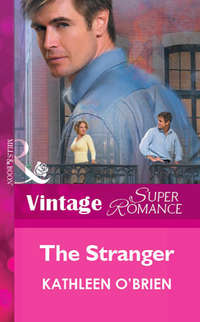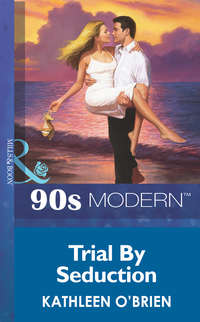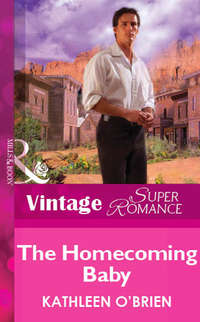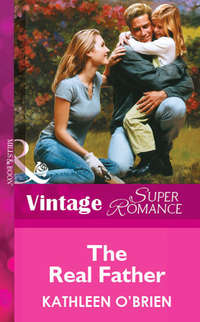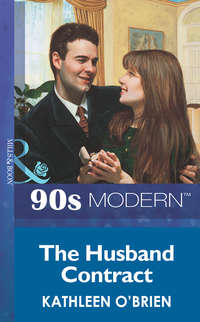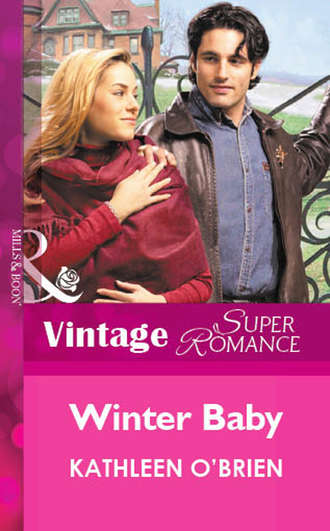
Полная версия
Winter Baby
“Damn it, Emma, give it up. I just asked the woman if she needed help. It’s my job, remember?”
Emma grinned and tucked into the pumpkin pie Theo Burke had just placed in front of her. “Yeah, but if she’d been a three-hundred-pound logger with a face like a gargoyle, I’ll bet you wouldn’t have stopped.” She turned to her audience. “This lady was gorgeous. Petite, honey-blond hair, great body. Dudley Do-Right here was practically drooling on his boots.”
Parker held out a napkin. “Shut up, Emma. Don’t talk with your mouth full.”
While she chewed, somehow he diverted the conversation, subtly leading Theo and the other customers in a debate about the ice festival, a subject that was always good for a distraction. Eventually the others wandered off, and he breathed a sigh of relief.
Emma could be a royal pain. But he had to admit—at least to himself—that she had been right about one thing. The woman on the overlook had been a knockout. He found his thoughts circling back to their encounter, over and over. She’d been underdressed for the weather, with only a green turtleneck sweater, jeans and a pair of boots. But the sweater had outlined a body that was darned near perfect. And her face had been more than pretty. He remembered the vulnerable curve of her cheek, almost as soft as a child’s. It made an interesting contrast with the strength he had glimpsed in her hazel eyes, the hint of determination in her chin.
Fascinating. He wondered who she was visiting. But that was the advantage of living in such a tiny town. Sooner or later, he’d run into her.
“What’s the matter with you, Emma Tremaine?” Theo Burke had appeared at their side, holding a second piece of pie for Parker. He grimaced. After a sugar rush like this, he’d have trouble staying awake all afternoon. But Theo would be hurt if he didn’t eat it. And besides, it was the food of the gods.
Emma looked up questioningly, her mouth still full of pie.
“Trying to get Parker interested in this woman on the mountain.” Theo scowled. “You don’t want to hook him up with another out-of-towner, do you?”
Emma shrugged, tossing her dark brown bob, the same haircut she’d had since high school. “Well, we’ve got to get him hooked up with someone, don’t we?” Her blue eyes, so like Parker’s own that it was like looking into a mirror, began to dance. “I’m not getting any younger, Theo,” she said plaintively. “I want to be an aunt.”
Theo narrowed her eyes, considering. Though she herself was a spinster, she had appointed herself the official town matchmaker, and she took her job seriously. “Still, there must be a suitable woman here in the Glen—”
Down the next row of tables, someone dropped a plate with a splintering crash. Theo didn’t bother to finish her sentence. She rushed over, ready to comfort her inconvenienced customer and to chasten her clumsy employee with one quick, deadly look.
Parker and Emma shared an amused glance. Theo Burke was famous for treating her customers like royalty. The Candlelight Café lived up to its name. Every table really did have an ivory taper set in a silver candlestick. And real linen, too. Theo trained her teenage waiters to what she called “French standards.” It amused the customers, but it kept them coming back. Where else could you get five-star service with your French fries?
“Seriously, though, Parker—” Emma toyed with the last bit of piecrust on her plate “—aren’t you interested in ever getting married?”
“I’ve been married,” he said calmly, drinking his coffee. “It wasn’t that much fun.”
“Yeah, but you married a bitch.” Parker gave his sister a quizzical look, and she bristled defensively. “Well, I’m sorry. But you did. The way she acted when you decided to come back to the Glen! Man, was she ever a witch.”
Parker put his coffee cup down. “Well, you can’t really blame her. Tina liked being married to a member of the Secret Service. It impressed her friends. And she thoroughly enjoyed having affairs with all the cutest politicians in Washington.” He grinned at his sister. “Apparently she couldn’t work up much enthusiasm for cheating on the sheriff of Firefly Glen.”
Emma eyes were as dark as mud. “I’d like to find that woman and—”
“Let it go, Emma,” Parker said lightly. “A lot of it was my fault, too. She didn’t start out being a bitch.”
That was true. He remembered how hypnotized he had been by Tina’s exciting body, her cover-girl face—the sophisticated pampering she’d showered on him, purring and seducing and flattering.
And he’d never forget how hot they had been for each other. Or how alarmingly fast that heat had burned itself out.
“That’s partly why I’m not eager to try it again.” He heard the sober note in his voice, and he was sure Emma recognized it, too. “Not unless I’m sure. I would have to be one hundred percent positive it’s the perfect woman.”
Emma’s expression was suddenly wistful, her earlier effervescence dissipated. “I don’t think that’s possible, Parker,” she said softly. “Nothing’s ever really perfect.”
He could have kicked himself. Though Emma never outright acknowledged it, he knew something was wrong in her marriage. She’d married Harry Dunbar, Parker’s deputy sheriff, just last year, and for a few months, things had seemed fine. But lately Emma’s natural buoyancy had flattened out. Something was definitely wrong.
Harry had been out of town since before Christmas, visiting his family in New York City. Emma hadn’t gone with him, something Parker couldn’t understand. Their first Christmas, and they spent it apart?
And there was the problem of the upcoming election. Apparently Harry had decided to run against Parker, which made for a damn sticky family situation. Harry had been pretty ticked off last year when, after the old sheriff’s death, the governor had appointed Parker to take over. Harry had fully expected to get the nod. After all, he’d been the deputy sheriff here for years.
So it was not really a shock to discover that Harry planned to oppose him in the election. He might win, too. Harry had lived in Firefly Glen all his life—a real plus with the voters. Some people around here considered Parker a traitor. It was okay to go off to college—everyone did that—but you were supposed to come right back. Parker hadn’t. He’d stayed away for eight extra years, getting his law degree, being a “big shot” in Washington. A member of the Secret Service. “Putting on airs,” Mayor Millner had called it once when he thought Parker wasn’t listening. Glenners didn’t care for “airs.”
Obviously Harry hadn’t consulted Emma about his decision. Rumor had it that Emma had ripped down Harry’s campaign poster the minute she saw it. She had apologized to Parker, and her repressed anger was obvious. He wondered what she had said to Harry.
But she wouldn’t talk about it. In fact, she still insisted everything was fine. And when Harry wasn’t around, like today, she was so much her normal playful self that Parker could forget.
“I know nothing’s perfect,” he said, reaching across the table to lay his hand over Emma’s. He was horrified to discover that it was trembling. “But we don’t have to settle for anything really bad, either, Emmy.”
She looked up and tried to grin. It was such a failure that Parker suddenly wanted to find Harry Dunbar and beat him senseless. “I mean it. We have a right to be happy,” he said tightly.
“Then get married and make me an aunt,” she said, banishing her gloom with an obvious effort. “That’s what would make me happy.”
CHAPTER THREE
AFTER HER ODD but appealing encounter with the sheriff, Sarah’s mood changed completely, and she entered the township of Firefly Glen with a light heart and a happy sense of New Year optimism.
She hardly recognized the place. Winter had completely transformed the summer playground of that visit so long ago. Carrot-nosed snowmen stood sentry at each corner of the town square where she and Uncle Ward had once played Frisbee and licked their melting ice cream from sticky fingers. And the leafy green maples where the Frisbee had finally gotten stuck were now just delicate brown skeletons against the dove-gray sky.
For a lifelong Southerner like Sarah, the sight was pure magic. She drove slowly, drinking in every detail. The shopkeepers here obviously didn’t feel that the arrival of January meant that Christmas decorations must come down. Windows, doorways, streetlights and storefronts were looped with deep green pine garlands threaded with velvety red ribbons. The large tree in the center of the square shone with huge red balls and small twinkling white lights.
And to Sarah’s surprise, the placid serenity she had imagined as she stood on the mountain looking down had been merely an illusion. What a world of teeming life these few blocks held, in spite of the freezing cold and the snow that still fell lightly.
The sign she’d passed on the way in had proclaimed that Firefly Glen had 2,937 residents. Surely every one of them was out here today, bundled up in puffy blue coats, cherry-red knitted hats, green-and-navy-checkered mittens and bright yellow mufflers.
As she watched one little toddler struggle to walk, as stiff-legged as the Michelin Man in his padded snowsuit, she cast a doubtful look at her own light gray wool-blend coat, which lay across the back seat of the rental car. It had been the best she could find at the department stores in Tampa, but she suddenly realized that it wasn’t going to be nearly warm enough for the rigors of a New York winter.
She thought of the long, twisting walk up the path to the front door of Uncle Ward’s medieval mansion. In that flimsy coat, she’d be frozen solid before she had a chance to rap the massive brass knocker. They might not find her until spring.
She began searching the names of the stores she passed, looking for something that might save her.
Adirondack Outerwear. Yes, that sounded perfect. Gratefully she slipped the car into one of the designated parking spaces. Clenching her teeth against the sharp bite of wind, she darted into the store, hoping her charge card could handle the extra expense.
A sweet-toned little bell announced her arrival, but no one came to greet her. In fact, at first sight, the store seemed deserted, the coats hanging abandoned on circular racks, the multicolored mittens lying in neat, forgotten rows under empty glass countertops.
But as Sarah made her way toward the back, she realized that she was not alone. Something was going on at the back of the shop, near the cash register. All the salesclerks—and several people who looked like customers, as well—were clustered around the counter.
A sales meeting? It didn’t sound like it. In fact, as she stood, wondering, the voices grew louder. It quickly became clear that she had stumbled into some sort of fracas. One person was waving a newspaper, and about four other people began talking at once.
Feeling like something of an intruder, Sarah considered trying to sneak out again. But her curiosity got the better of her. What, in an idyllic hamlet like this, could be making everyone so hot tempered?
She fingered a few coats not far from the action, shamelessly eavesdropping. She couldn’t help being curious about the people here. The anecdotes in Uncle Ward’s vivid letters had made her feel as if she knew them.
“It’s libel, I tell you. It’s actionable. I can prove damages—”
“He can’t do this! I won’t make it through the winter without the profits from the festival!”
“Damn it, Tremaine, if you can’t do something about that bad-tempered old hermit—”
Tremaine? Sarah looked up, wondering if it could be the sheriff she’d met on the mountain. It was hard to see through the crowd, but finally the agitated people shifted, clearing the way. And there he was.
Sheriff Parker Tremaine, his gold star still resting on the soft black leather of his jacket, was the man at the core of the debate, the authority to whom they all appealed. No question it was the same man. Same wavy, dark hair, same startlingly blue eyes. Same tip-tilted smile on the same generously chiseled lips she had admired once before. Apparently he wasn’t exactly terrified of the annoyed crowd around him.
Sarah caught her breath. She had found him fairly eye-catching before, but obviously seeing Parker Tremaine from the neck up didn’t tell the whole story. As she watched him leaning back against the cashier’s counter, listening to the escalating complaints, Sarah finally got the full effect of his long, lazy limbs and tight, narrow hips.
He was even better looking than Ed, she realized. And yet, he had a kindness in his expression that Ed hadn’t ever exhibited. Even more appealing, he seemed comfortably indifferent to his looks. His jacket was well-worn, fitting his broad shoulders with a fluid familiarity. His hair was just wavy enough to be unruly, but she saw no sign that Parker cared. Where Ed had always been obsessively gelling or spraying, Parker’s hair was merely cut and combed and then ignored. But the result was an unintentional sexiness, as if that slight disarray invited someone to smooth it into place.
Her hands unconsciously stroked the silky fabric of the coat she held. Yes, she concluded, Parker Tremaine wore his sex appeal the same way he wore that shiny badge on the breast of his black leather jacket—lightly. As though both of them were fun but ultimately unnecessary.
She hadn’t realized she was staring until she saw that Parker was looking right at her. Even from this distance, she could tell that there was a pleased recognition in his gaze.
Maybe she could help. In a way, she owed him. He had offered to rescue her on the mountain, and he had, without realizing it, actually done so. She hadn’t needed a jump start or a can of gas or a new tire. But she had needed that smile, that simple gesture of welcome. He had rescued her confidence, her optimism. He had given her the courage to make it that last mile down the mountain.
She spoke up quickly, just loud enough to be heard over the clamor of voices. “Excuse me? I’m sorry to interrupt, but is there anyone who might be able to tell me about this coat?”
Everyone turned toward her, apparently shocked to discover that there was a witness. Sarah felt herself flushing, slightly uncomfortable at being the center of attention, but then she caught Parker Tremaine’s eye one more time, and he was giving her that special smile. She smiled back, but she felt the flush deepen.
“I’m sorry. May I help you?” Two salesclerks came over instantly, chagrined. The rest of the people dispersed edgily, talking to one another in lowered tones, as if wondering what imprudent comments this stranger had overheard.
Sarah pretended to listen to the saleswoman extolling the virtues of Polarweave technology—something about storm cuffs and synthetic insulation and temperature ratings—but she was really watching as Parker Tremaine made his escape through the confused crowd.
As he passed her, he winked conspiratorially in her direction. “Thanks,” he mouthed, and she found herself grinning stupidly back, as if she really had done something heroic.
“Damn it, Tremaine, you can’t get out of here without promising you’re going to do something about that selfish old bastard.”
One of the men from the crowd, a seventy-ish, self-important type with a red face and a snub nose, had followed the sheriff to the door and was obviously not going to give up easily.
Parker sighed, pulling on black leather gloves as he shouldered open the shop’s front door. A blast of freezing air hit the front of the store, driving the older man back, as the sheriff had no doubt expected it to do.
“I’ll take care of it,” Parker said firmly as he zipped up his jacket and prepared to exit. “This festival is going to take place even if I have to lock Ward Winters in the county jail until spring.”
Ward Winters?
But Sarah was too shocked to say a word. And with a melodic ringing of door bells, Parker Tremaine departed, leaving her standing there, with an expensive black Polarweave coat in her arms and a stupid, disbelieving smile fading from her lips.
FOR THE THIRD TIME, Emma Tremaine Dunbar sat down in the back office of her stationery store, The Paper House, to proof the copy for the Kemble baby announcement.
She prayed that the front door chimes didn’t sound. It seemed ridiculous to hope for bad business, but she couldn’t afford to get called away again. She had promised Harry that she’d close early. He wanted to have lunch at home together. He wanted to have a “serious talk.”
But this announcement had to get to the printer today, or the Kemble family would be justifiably furious. If only she thought Harry would understand. He liked the money her store brought in, but he seemed to think it took care of itself. He didn’t accept that Emma should ever be busy when he needed her.
Darn. There were three typos. She swiveled to the computer, punching in the keys as fast as she could, trying to call up the Kemble file. She glanced nervously at the clock overhead. It was one. She was already late.
The door chimes rang out. Emma stifled a groan, mentally begged the file to open more quickly, then stood up to return to the sales floor.
But this time it wasn’t a customer. It was Harry.
He wasn’t in uniform. Harry didn’t work on Monday. His days off were Monday and Tuesday, about which he complained bitterly, blaming Parker for designing an unfair schedule. Emma had pointed out once that Parker’s own schedule was even worse—he didn’t even get two days off in a row—but Harry didn’t care. Whenever anything displeased him these days, it was always Parker’s fault.
Or Emma’s. She looked at Harry’s tight face and wondered why he was still so unhappy. Last year had been so different. Back before Parker had moved home and snagged the job Harry had wanted. Before the other bad news, before they had discovered that they…
Well, just before. They had been happy then. They had laughed—a lot. Now she couldn’t remember the last time Harry had even smiled.
And yet, in spite of his frown, he looked so darling today, in that brown suede jacket she’d given him for his birthday, which matched his brown hair perfectly. Her heart did a couple of hot little thumps, thinking how much she loved her husband—and yet how little she seemed to be able to comfort him.
“I knew I’d find you here,” he said stiffly. “I knew you’d forget I had asked you to come home for lunch.”
“I didn’t forget,” she said, vowing not to take offense. “I had customers.”
He looked around the empty store, commenting silently on its emptiness.
“And then I had an order to proof.” She felt her patience giving out on her. “Come on, Harry. You aren’t always able to get home on time, either. Do I give you this kind of grief about it?”
He tightened his lips. “I don’t think you can really equate the two, do you? I think enforcing the law might be just a little more significant than sending out invitations to Birthday With Bozo.”
Emma stared at him helplessly. She wanted to go up to this sour, embittered man and grab him by his suede collar and shake him until he told her what he had done with her real husband. Or else she wanted to go up and kiss him until he thawed, until he remembered that he was special, no matter what had happened to make him feel so insecure. Until he remembered that she loved him, and she always would.
But she’d already tried those things, more or less. And they hadn’t worked. They’d only driven him deeper into his emotional hole. Apparently he didn’t want to get better. And he didn’t like it that she seemed to be able to move on, to put together a happy life in spite of the grim disappointments they had endured this past year.
Her strength didn’t sustain him. It only made him feel even more inferior.
But she wouldn’t be weak just to please him. She wouldn’t drown with him, no matter how much she loved him.
“Well, we’re together now. How about if I lock the door, and we can have our conversation here? What did you want to talk about?”
He raked his hand through his hair. “You know what. The poster. I want you to explain to me why you took it down. I want to know why you aren’t willing to campaign for your own husband. I want to know why, when the income from my career supports you, too, you can’t do even that one little thing to help me win.”
Emma’s heart was beating rapidly. Stalling, she arranged herself on the edge of the nearest table, careful not to dislodge the large sample books of cards and invitations. She took a deep breath and gave Harry a steady look.
“That’s not a conversation,” she said. “That’s an interrogation.”
“I don’t care what you call it. I want some answers.”
“So do I.” She folded her hands in her lap, to help her resist the temptation to choke him. “I want to know why you’d put me in the embarrassing, distressing position of having to choose between my brother and my husband.”
Harry narrowed his eyes. “And I want to know,” he said, his voice acid, “why that choice should be even the slightest bit difficult.”
The urge to shake him grew stronger. Was it possible he really didn’t understand this? That his self-absorption had become so complete that he couldn’t imagine what she was feeling?
“Because I love you both, you idiot. Because you and Parker are the two most important people in the world to me. I can live with the fact that you are competing for the same job. But I will not be forced to take sides.”
“You’re already taking sides. If you don’t publicly support me, it makes me look bad. Everyone will know what that means.”
“I disagree,” she said, still striving to be rational. “I think it makes you look good. It shows that you’re not eager to make this campaign any more uncomfortable for your family than it has to be. It makes you look as if you’re sensitive to your wife’s dilemma. Even if you’re not.”
He made an angry gesture. “Oh, so now I’m not sensitive, either?”
“Harry, for heaven’s sake—”
To her dismay, the front door chimed, and a customer walked in. Oh, God, she had forgotten to lock the door. The tension of living with this new Harry was making her absolutely crazy.
It was a middle-aged woman. A tourist. You could tell by her deep copper suntan, something you never saw on the faces of locals. She was dusting snow from her shoulders, oblivious to the fact that she was shaking it onto the Valentine’s display Emma had just begun to assemble, where it would melt and ruin everything it touched.
The woman patted her big, teased helmet of preposterous yellow hair, transferred her huge designer purse from one hand to another and scanned the store avidly. “Have you marked down your Christmas cards yet?”
Emma stood politely. “Yes,” she said. “I’ll show you where they are. Just give me a minute to—”
But Harry was already gone.
THE COAT HAD COST her three times what she could afford, but as Sarah trudged up the winding path toward Winter House, which sat at the top of a small, snow-covered hill, she decided it was worth every penny.
Though it was only about two in the afternoon, the temperature had begun to drop, and the light had taken on a bluish cast, as if twilight were impatiently pressing against the sun. The falling snow was thicker now, and with every step Sarah’s feet sank into several inches of fresh white powder.
Looking up toward the mansion, Sarah saw that it, too, had been transformed by winter. In that long-ago summer, to the thirteen-year-old Sarah who had harbored here, Winter House had seemed like a happy, honey-colored, sun-kissed castle. The hill it stood on had been kelly-green, and the surrounding lush parkland of oaks had softened the mansion’s asymmetrical lines.
It was different now, in this stark setting. It was more like some mysterious, silent abbey—dark and complicated and vaguely forbidding. For the first time, she could see that the mansion had been aptly titled. Even if its owners had been named Smith, this would have been Firefly Glen’s Winter House.



